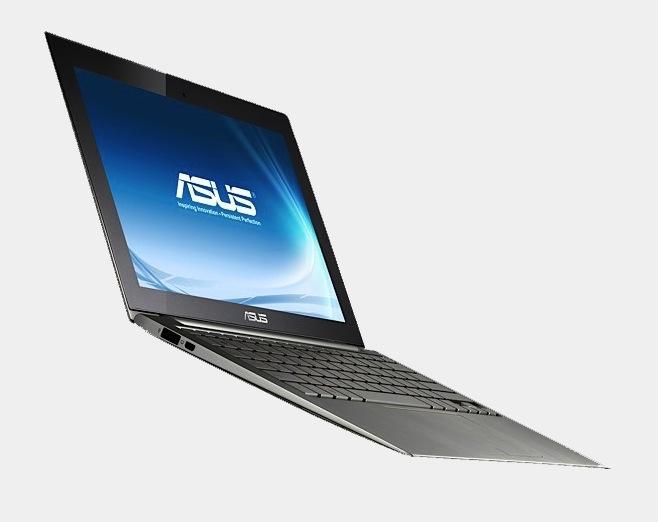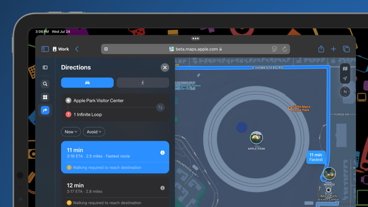Ultrabooks headed for 5-10% price drop in early 2012
Taiwan-based supply chain makers told industry publication DigiTimes that Ultrabook makers Acer, Asustek and Toshiba will lower their retail prices this holiday season. Meanwhile, Lenovo, Hewlett-Packard and Dell have geared up to launch their own Ultrabooks this month, sources said.
The report went on to note that a marketing subsidy from Intel may contribute to further price cuts in the range of 5 percent to 10 percent early next year. Sources said the chipmaker's partners have had a tough time meeting the sub-$1,000 goal for their Ultrabook models.
According to them, a 13-inch SSD-equipped Ultrabook has an estimated bill of materials (BOM) of $690. OEM costs are approximately $100, and marketing and distribution costs run $150, bringing the total cost to $940. Insiders estimated that the CPU, 128GB SSD and LCD panel cost $175-200, $140-150 and $45-50, respectively.
Intel took the wraps off its Ultrabook design guidelines earlier this year. Qualifying machines will be less than 20mm thick and cost less than $1,000.
Thomas Kilroy, the company's senior vice president and general manager of its sales and marketing group, said during the design's unveiling that Ultrabooks will benefit from "a massive campaign by Intel in 2012."
PC makers reportedly lobbied Intel for a 50 percent price cut on CPUs bound for Ultrabooks, in an attempt to compete with Apple's MacBook Air pricing. Intel instead opted to offer a 20 percent discount to "first-tier notebook players."
Though the chipmaker is aiming for the specification to account for 40 percent of laptops by the end of 2012, Ultrabook makers have been cautious with their initial shipments. Some companies were said to be "testing the waters" with shipment volumes of less than 50,000. Acer and Asus are believed to have slashed their Ultrabook orders by 40 percent because of unsatisfactory demand.
Research firm Canalys sees price as a difficult obstacle for Ultrabook makers. The firm does see Ultrabooks becoming an important segment of notebook sales over the next five years, but, in the meantime, Apple is expected to take the top spot among PC vendors if iPads are included in the figures.
"For Ultrabooks to become widespread, prices have to drop considerably," said analyst Michael Kauh. "The least expensive models are currently around $800, a real barrier to mass consumer uptake. As more vendors embrace the Ultrabook design, component costs should drop and mainstream consumer prices will be achieved."
Apple has squeezed its competitors with aggressive pricing of the MacBook Air. In 2010, the Mac maker introduced an 11-inch MacBook Air model, cutting the entry-level price from $1,499 (for the previous 13-inch model) to $999. According to one recent report, Apple will drop the prices of its thin-and-light notebooks even further in coming months to clear out inventory for a new series. Rumors have also suggested that a 15-inch MacBook Air will arrive in the first quarter of 2012.
With the new models, Apple has seen the MacBook Air's share of its total Mac shipments swell in recent months. According to Morgan Stanley and NPD, the ultra-thin notebooks now comprise 28 percent of the company's notebook shipments, which are already at record levels.
 Josh Ong
Josh Ong














 Amber Neely
Amber Neely
 Thomas Sibilly
Thomas Sibilly
 AppleInsider Staff
AppleInsider Staff
 William Gallagher
William Gallagher
 Malcolm Owen
Malcolm Owen
 Christine McKee
Christine McKee









33 Comments
... as is most modern technology likely to see price drops.
So Intel is giving discounts on CULV chips to companies using their ultrabook base design but Apple, the company that buys a great many of these expensive CULV chips isn't get this discount? I hope Intel isn't pissing off Apple or their longterm plan to prevent ARM from invading low-power notebooks might end up backfiring. We already the OS X kernel already runs, and runs well, on ARM, and that Windows 8 will support ARM.
So Intel is giving discounts on CULV chips to companies using their ultrabook base design but Apple, the company that buys a great many of these expensive CULV chips isn't get this discount? I hope Intel isn't pissing off Apple or their longterm plan to prevent ARM from invading low-power notebooks might end up backfiring. We already the OS X kernel already runs, and runs well, on ARM, and that Windows 8 will support ARM.
Well first of all, do we know for a fact that Apple didn't get a sweet deal? I mean, Tim Cook's supply chain skills are supposed to be legendary. And if Apple is "pissed" about it, they would do what they've always done: renegotiate the terms of their deal with Intel. It's just business. You make it sound like Apple and Intel are jealous lovers. (That's Apple and Google ).
There was a post this year suggesting that Apple is considering using a "A" based chip in future Macbook XXX. It might lower the price of that device if Apple used lets say a A6 Quad core.
Well first of all, do we know for a fact that Apple didn't get a sweet deal? I mean, Tim Cook's supply chain skills are supposed to be legendary. And if Apple is "pissed" about it, they would do what they've always done: renegotiate the terms of their deal with Intel. It's just business. You make it sound like Apple and Intel are jealous lovers. (That's Apple and Google ).
Pissed wasn't the best choice of words. That makes it sound more emotional and less strategic than I intended. My point is that Apple is a "keystone" PC company that drives trends and with Win8 already headed for ARM/x86 and OS X's kernel already there and designing their own ARM-based packages Intel losing a company like Apple once quad-core A15 or better chips come along could be very bad for the nptebook market for Intel.